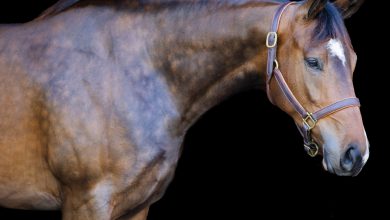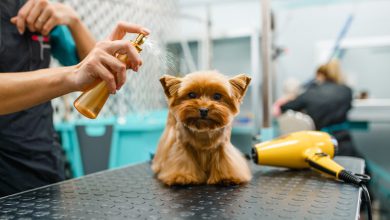Why Is My Puppy So Hyper? 9 Vet-Verified Reasons

Puppyhood comes with a huge learning curve for your new puppy and for you as a new dog owner. While they learn about the world and how to interact with it, you need to learn about the best food and training supplies and figure out an exercise routine that will keep your dog happy.
Managing your puppy’s energy level isn’t always easy, especially after a long, exhausting day at work. When you just want to sit and relax, your puppy’s hyperactivity can be a chore to deal with, especially when it ends with sharp and often painful bites because your puppy just wants to play.
Hyperactivity is a common issue. Fortunately, knowing the causes can help you encourage your puppy to calm down. Here are common reasons for hyperactive puppies and tips on how to help them overcome it.

The 9 Reasons for Hyperactivity in Puppies
1. Lack of Exercise or Entertainment
Puppies burn energy by exploring and playing, but there comes a point when they run out of things to do. They need a variety of toys, activities, and walks to manage their energy, or they might get bored or frustrated about having nothing to entertain themselves with.
Boredom and frustration often result in destructive behavior or aggression, but it can also be shown through how much trouble your puppy gets into by zooming around the house. If they don’t have an acceptable target for their energy, like a good chew toy, all that pent-up energy will be released by barking, running around, or jumping up at you and your guests.
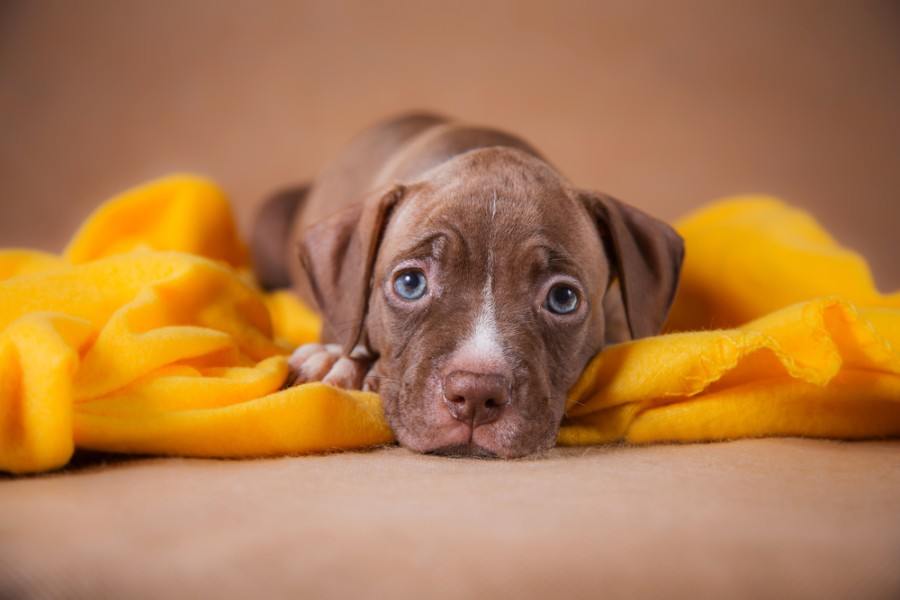

2. Overtired
While boredom can be a cause of hyperactivity, the opposite is also true. Puppies that have too much to do can also be prone to hyperactivity. When they get too tired and don’t understand that they need a nap, their discomfort will make them frustrated. While they might chew through your favorite shoes, they can also become hyper.
You need to find a careful balance between not enough activity and too much. This will become easier the more you get to know your dog and the more familiar you become with their energy levels. Give them plenty of activities to do, including training sessions, but don’t forget to give them regular quiet times, too. This will give them a chance to cool off, relax, and get in a quick nap to recharge.
3. Attention Seeking
They might be small, but puppies are like sponges when it comes to learning new things. With treats, affection, and dedication, your puppy will pick up all sorts of things, including behavior that you might not mean to encourage.
Puppies love to have your attention, whether it’s in treat form or affection. If you pay attention to your puppy every time they get overexcited during playtime, they’ll see it as positive reinforcement, even if you’re trying to tell them to stop. The next time they feel neglected, they may try being hyperactive because they know that it’ll get your attention.
Encourage calm behavior by interacting with your puppy when they’re playing gently or relaxed. If they get overexcited, make yourself less interesting. Stop pulling on the tug toy and step away. It’s a challenge, but it’s worth it to teach your puppy when enough is enough.
4. Breed
All puppies are full of energy when they’re young, but the amount of energy packed into their tiny body can vary depending on their breed. A working dog like the Border Collie will have far more energy than a more sedate breed like the French Bulldog. While the breed’s size can play a part, the original purpose of the breed is important to consider, too.
Consider Border Collies as an example. They were bred to herd sheep all day, every day. To this end, they need plenty of energy and an almost endless amount of stamina. This trait makes them one of the best herding breeds in the world, but they’re renowned for being relentless when it comes to their energy levels. A puppy might have less stamina than an adult Border Collie, but they’ll still have a large amount of energy for you to manage.
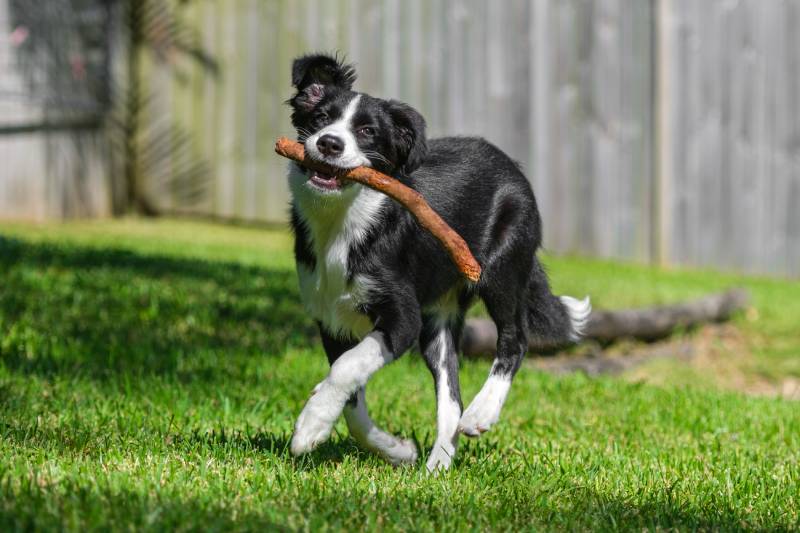

5. Diet
Sometimes, your puppy’s hyperactivity might not be because of their breed or the fact that they’re overstimulated. Instead, it might be a result of what they eat. The food that your dog eats will impact all their systems, from their digestive system to their brain development. It can even make a difference in their sleep cycle, energy levels, and skin health.
A healthy, high-quality diet will help your puppy grow and support natural energy levels and health. Conversely, the wrong diet might contain an excess of ingredients, often high protein, which can result in hyperactivity. It’s important to carefully research the nutrition that your dog needs and check the ingredients in their food with your vet.
6. Lack of Training
Obedience training isn’t just a way to encourage your dog to listen to you; it also teaches them how to manage their behavior. The same is true for socialization. The more experience your dog has, the more familiar they’ll become with people, other pets, and other stimuli.
Without training, your puppy won’t know how they’re expected to react to things that they experience. A quick play session might end with an overexcited puppy that doesn’t know how or when to calm down again simply because they haven’t been taught to recognize when their behavior is unacceptable.
It might be fun to have a tiny puppy climbing all over you or cute when they nip at your fingers, but you need to remember they won’t always be small. An adult dog biting or jumping on you isn’t nearly as fun and can even be dangerous, especially if they do it to a child or a stranger.
7. Underlying Health Problems
Most of the time, hyperactivity in puppies is easily corrected and can be a result of a bad diet, their breed, or limited exercise. However, it can also be caused by underlying health issues. This is rare but a possibility.
When you’re trying to figure out the cause of your puppy’s hyperactivity, you need to pay attention to whether the behavior continues. If you change their diet, activity level, and training, but they’re still hyper, book an appointment with your veterinarian. They’ll be able to screen for medical issues like hyperthyroidism, neurological conditions, or other medical issues that might result in hyperactivity. The earlier you get the problem diagnosed, the easier it’ll be to treat.
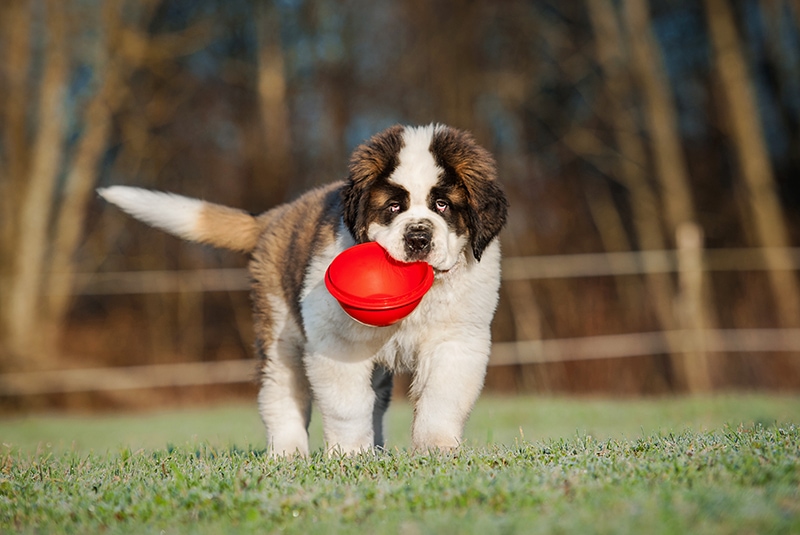

8. Potty Break
Puppies, especially younger ones, aren’t just learning about the world around them. They’re also learning how their body works and what it’s trying to tell them. As they learn to interpret what they need, they can show odd behavior.
One of the most common is becoming hyper or overly restless when they need to go to the bathroom. If they’re older and slowly getting used to house training, hyperactivity might be their way of asking to go out. If they’re younger, they might not fully understand what their body is trying to tell them. This might lead to a bout of the zoomies until they figure it out.
9. Puppy Energy
Most of a puppy’s hyperactivity simply comes down to being a puppy. Younger dogs tend to be more excitable than adults; it’s normal. They need a great deal of energy to explore the world around them, and they often haven’t figured out how to manage their energy levels.
As they grow, your puppy will steadily grow out of their hyperactivity. They might still get the zoomies when they’re older, but they’ll also settle down more in their maturity and learn to control themselves better.
You can help by reinforcing calm behavior and working on obedience training. Providing a job for your working breed to do can help too.


How to Prevent Hyperactivity in Puppies
Puppies are energetic goofballs no matter what breed they are, but this doesn’t mean their energy can’t be managed. Once you know the possible causes of their hyperactivity, you can work on figuring out how to properly manage their energy levels.
Consider Their Breed
Before you bring home a puppy, always make sure you do plenty of research into the breed you’re interested in. You need to see if your lifestyle enables you to keep up with a high-energy dog or whether a quieter breed will be more of a match for you.
While a dog can encourage you to be more active, a high-energy herding breed might be too much for you to keep up with. Your time constraints need to be considered, too. If you’re at work all day and then have to take care of the kids in the evening, you might not have time to give your dog the exercise that they need to manage their energy levels.
Give Them Something to Do
The right level of activity is the best way to manage a hyperactive puppy’s energy levels. You need to supply them with various toys and activities throughout the day to keep them moving. Physical activity isn’t the only outlet that you should provide for your dog’s energy, though. Consider giving them puzzles and other mental activities to keep their brain active.
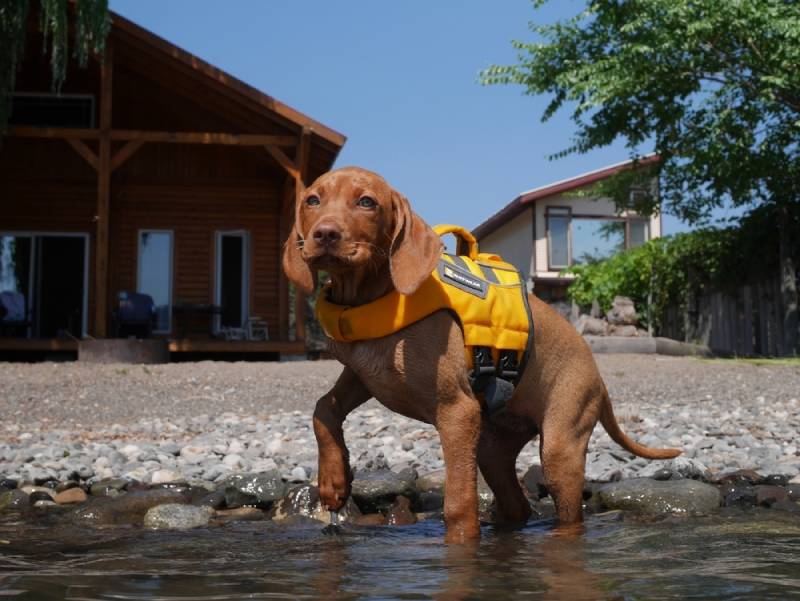

Reinforce Calm Behavior
It might seem like your puppy is running around 24/7, but there are many times when they’ll be calm and quiet. You’ll also learn to notice when your puppy is playing gently before they get too invested in their game. It’s this calm, relaxed behavior that you want to reward with treats and your attention.
By positively reinforcing your puppy’s calm behavior and disengaging when they get overexcited, you’ll teach them that playing nicely keeps the game going longer.
Work on Their Training
Sometimes, hyperactive behavior isn’t hyper so much as bad manners that your dog has learned through their interactions with you. Training can help here. You can help your puppy learn that jumping up on you or racing around the house when you grab the leash isn’t appropriate behavior.
By teaching them how to behave, you’ll also encourage them to think about how they react to different situations. This will help keep their mind active, too.

When Do Puppies Stop Being Hyper?
Most puppies will grow out of their boundless energy levels. As they learn how to control themselves, they’ll know how to manage their energy and settle into their maturity. This can take between 1 and 2 years, depending on their breed.
The longer you have your dog, the more familiar you’ll become with their needs. You’ll be better able to build a routine perfect for their activity level and figure out when they are getting restless or bored or need a break. Some breeds are also much quieter and happier to laze around than others.
For more active breeds, you’ll find that they never lose their excessive energy levels. They might learn to play nicely and behave in a manner that’s not quite so hyperactive, but they’ll still be full of energy all day. This is why building a routine that’s tailored to them and their energy needs is essential, along with making sure you choose a puppy that matches your family.


Conclusion
Puppies are always full of energy, but there comes a time when they aren’t energetic so much as hyperactive. While the cause of this can be as simple as puppyhood exuberance as they learn about the world around them, it can also be caused by overstimulation, tiredness, boredom, diet, and, on rare occasions, health issues. Use this list to figure out what’s setting off your puppy’s hyperactivity, and try to adjust their schedule to suit their energy needs to manage it.
Featured Image Credit: Georgi Baird, Shutterstock
